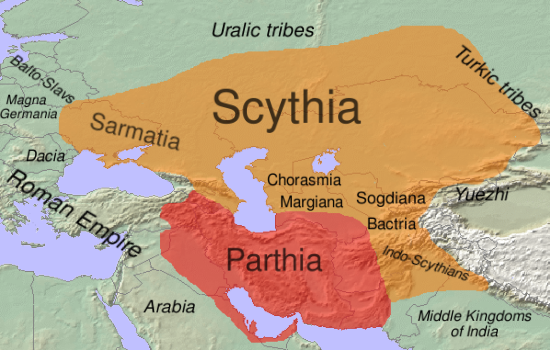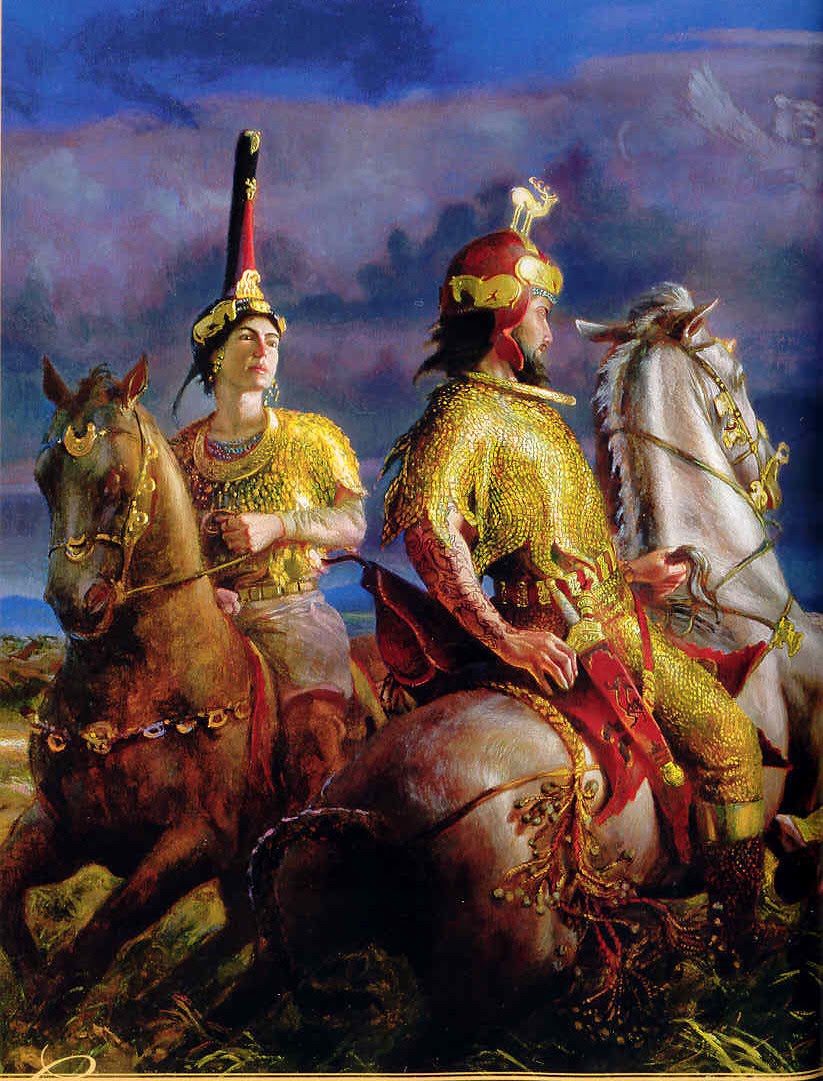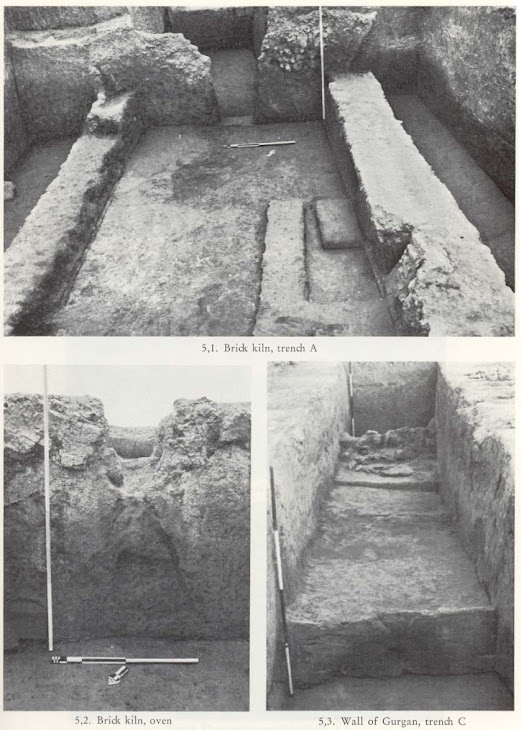"The superficial notion of shirk—the worship of material idols—must be understood on a more subtle plane as false gods hidden within one's intentions, attitudes and orientations; as all elements of hidden pride, vanity, ostentation, pretentiousness. As the Imam [`Ali ibn Abu Talib] says: 'Know that the slightest ostentatiousness (riya`) is polytheism.'"
—Reza Shah-Kazemi[3]
KABA ASTEROID UP CLOSE
Mohammad beat up pagans in his own tribe for worshiping this rock. Have they all forgotten?
MOHAMMAD REFUSED TO BLESS THE REGION OF RIYADH(NAJD), SAYING THE HORNS OF SATAN WILL SPAWN FROM THERE.
Allah’s Messenger (may peace be upon him) as saying (in a state) that he had turned his face towards the EAST( Najd): Behold, turmoil would appear from this side, from where the horns of Satan would appear.http://najd2.wordpress.com/
http://just-another-inside-job.blogspot.com/2008/12/zionist-rulers-of-arabia.html

...(Sura 2:126 And remember Abraham (who was a [[semite]]Hebrew - NOT Jewish) said: "My Lord, make this a City (Jeru) of Peace (salem) - Jeru-salem means "City of Peace".
Sura 2:125 The House (of God) is the Station of Abraham where he offered Isaac in sacrifice (Mt. Moriah - Genesis 22 v 2) in the "City of Peace" - "Jerusalem".
Sura 2:144 Turn then thy face in the direction of the Holy Temple: wherever ye are turn your faces in that direction. The people of the Book (Bible) know well that that is the Truth from their Lord. Of course they know to turn their faces to Mt. Moriah in Jerusalem because the Book - Bible tells them to do so - that is why all churches face Jerusalem - read Genesis 22 v 2-3, 14; 2 Chronicles 3 v 1 & 6 v 20-21; 1 Kings 6 v 1-2, 11-14 and 1 kings 8 v 29-30 and Isaiah 56 v 7.
...The story about Mecca was made up by the Meccans to advertise and promote Mecca (in their advertising brochure - the Hadith) and is a complete fabrication. It has NOTHING to do with the Holy Koran. The Hadith contradicts God's Koran.
SATAN MAKES MOUNTAINS OUT OF MOLEHILLS
Instead of being on the same page, many Muslims and Christians are at each others' throats. Why? Because Satan the District Attorney has made them to disagree on the slightest nuances.
Many Muslims believe Judas took Christ's place on the cross, yet NOWHERE is it in the Quran. How can Judas be on the cross when he hung himself? All Mohammad said was they failed at killing him(Yeshua) and that it only looked like they did. Satan the lawyer has blown smoke over the truth. Yes if you are a true believer, you have no doubt in your heart Christ Yeshua survived his execution on the cross and lived a very active life after wards, then whenever after that period he was caught up in a whirlwind in the same way the Prophet Elijah & Enoch was. Satan has led many Muslims to believe Yeshua wasn't even on the cross because Mohammad said he wasn't crucified. YES IT IS TRUE HE WASN'T CRUCIFIED BECAUSE HE LIVED AFTER IT! PLUS LONGINUS BROKE THE LEGS OF THE OTHER 2 VICTIMS ON THE CROSS AND ONLY PIERCED YESHUA IN THE SIDE, THEN AFTER HE AROSE 3 DAYS LATER. The truth is simple, only lies are complicated.
There are many confusing translations of the Quran into English. Fortunately I found this one:
Whenever religious books confuse me I go running to the works of Josephus who I find frank and demonstrates how events co-relate.
THE ANGEL GABRIEL IS NOT THE HOLY SPIRIT
Many Muslims believe the "Holy Spirit" is the "Angel Gabriel". The Lord of Spirits created Yeshua, then the Lord of Spirits created the Holy Spirit to make other spirits. The Lord of Spirits is Allah ("Alaha" in Syriac/Aramaic), The Head Of Days is the Holy Spirit and The Son Of Man is Yeshua. The Angel Gabriel is a separate distinct messenger.
(ENOCH [Chapter 46]
1 And there I saw One who had a head of days,
And His head was white like wool,
And with Him was another being whose countenance had the appearance of a man,
And his face was full of graciousness, like one of the holy angels.
2 And I asked the angel who went with me and showed me all the hidden things, concerning that 3 Son of Man, who he was, and whence he was, (and) why he went with the Head of Days? And he answered and said unto me:
This is the son of Man who hath righteousness,
With whom dwelleth righteousness,
And who revealeth all the treasures of that which is hidden,
Because the Lord of Spirits hath chosen him,
And whose lot hath the pre-eminence before the Lord of Spirits in uprightness for ever.
4 And this Son of Man whom thou hast seen
Shall raise up the kings and the mighty from their seats,
[And the strong from their thrones]
And shall loosen the reins of the strong,
And break the teeth of the sinners.
5 [And he shall put down the kings from their thrones and kingdoms]
Because they do not extol and praise Him,
Nor humbly acknowledge whence the kingdom was bestowed upon them.
6 And he shall put down the countenance of the strong,
And shall fill them with shame.
And darkness shall be their dwelling,
And worms shall be their bed,
And they shall have no hope of rising from their beds,
Because they do not extol the name of the Lord of Spirits...
[Chapter 54]
1 And I looked and turned to another part of the earth, and saw there a deep valley with burning 2 fire. And they brought the kings and the mighty, and began to cast them into this deep valley. 3 And there mine eyes saw how they made these their instruments, iron chains of immeasurable weight. 4 And I asked the angel of peace who went with me, saying: ' For whom are these chains being prepared ? ' And he said unto me: ' These are being prepared for the hosts of Azazel, so that they may take them and cast them into the abyss of complete condemnation, and they shall cover their jaws with rough stones as the Lord of Spirits commanded. 6 And Michael, and Gabriel, and Raphael, and Phanuel shall take hold of them on that great day, and cast them on that day into the burning furnace, that the Lord of Spirits may take vengeance on them for their unrighteousness in becoming subject to Satan and leading astray those who dwell on the earth.'...)
(...Furthermore, this study of hadith is not a lost knowledge. It has been studied and practiced continuously from sahaba's generation to our generation....)
https://www.quora.com/Can-you-be-a-Muslim-if-you-reject-the-Hadith-as-being-false-and-misleading
ASSASSIN (HASHISH) SECT - ORIGIN OF SUICIDE BOMBERS.
Certainly Hassan ibn Sabah and the later Grand Masters of the sect were interested in power, indeed there was a time, before their ambitions were temporarily thwarted by the arrival of Genghis Khan and the Mongol hordes, when it looked as though the Assassins might take control of the entire Muslim world.
The influence of the Assassins, as their name implies, was based primarily upon the practice of executing anyone who incurred the Master's displeasure or who offered a threat to the cult, either real or imagined. These executions were earned out by carefully trained and utterly dedicated killers called the Fidavis. The training is of particular interest since it involved certain mind altering techniques.
I have already mentioned that the Assassins were also known as the Hashishim. This alternative title relates to the practice of drugging initiates with hashish and then introducing them into a purpose-built 'heaven on earth' — a luxurious palace surrounded by beautiful gardens and inhabited by throngs of lovely women who attended to the initiate's every desire during his brief stay. After a suitable period of time the initiate was drugged again, returned to the Eagle's Nest, and told that he could only return to Paradise if the Master willed it, that is, if he unhesitatingly obeyed the Master's every command. The results of this process were remarkably successful...
Mohammad forbid religious sects (Sunni, Sufi, Shiite, Wahhabi, Ahmadiyya, NOI, etc...) yet how many sects today?!?!
you. Their judgment rests with GOD, then He will inform
them of everything they had done.
their religion into sects; each party rejoicing with what they have.
knowledge had come to them, due to jealousy and
resentment among themselves. If it were not for a
predetermined decision from your Lord to respite them for
a definite interim, they would have been judged
immediately. Indeed, the later generations who inherited
the scripture are full of doubts.
NATION OF ISLAM SECT LEADER, ELIJAH MOHAMMAD, WITH SYMBOL OF GODDESS DIANA (star and crescent moon)
WIZARD COSTUME WITH GODDESS DIANA SYMBOL ON HAT
"...She was particularly worshipped as a black stone at Quidaid, near Mecca..."
http://www.thaliatook.com/AMGG/arabtriple.html
READ ABOUT FAKE MUSLIMS IN "TERRORISM AND THE ILLUMINATI" BY DAVID LIVINGSTONE
http://www.4shared.com/get/wA6u7swJ/terrorism_illuminati.html
DAVID LIVINGSTONE'S WESITE - http://www.thedyinggod.com/
“Say,” God commands Muhammad, “God is one. God is eternal. He has neither progeny nor ancestry. He is absolutely without parallel” (Qur'an, 112:1–4).
JOSEPHUS' ACCOUNT OF A SEA PARTING FOR THE WILL OF THE ALMIGHTY
SYRIAC/ARAMAIC WAS THE POPULAR LANGUAGE AT THE TIME OF MOHAMMAD. THE ARABIC LANGUAGE SURFACED ON THE SCENE, 200 YEARS AFTER HIM!!! THE WORD "QURAN" MEANS "RECITE" IN SYRIAC.

http://www.mediafire.com/?ijzyygkmtnz
From the Gospel to Islam
An interview with "Christoph Luxenberg" by Alfred Hackensberger
Q. - Professor, why did you think it useful to conduct this re-reading of the Koran?
A. - "Because, in the Koran, there are many obscure points that, from the beginning, even the Arab commentators were not able to explain. Of these passages it is said that only God can comprehend them. Western research on the Koran, which has been conducted in a systematic manner only since about the middle of the 19th century, has always taken as its base the commentaries of the Arab scholars. But these have never gone beyond the etymological explanation of some terms of foreign origin."
Q. - What makes your method different?
A. - "I began from the idea that the language of the Koran must be studied from an historical-linguistic point of view. When the Koran was composed, Arabic did not exist as a written language; thus it seemed evident to me that it was necessary to take into consideration, above all, Aramaic, which at the time, between the 4th and 7th centuries, was not only the language of written communication, but also the lingua franca of that area of Western Asia."
Q. - Tell us how you proceeded.
A. - "At first I conducted a ´synchronous´ reading. In other words, I kept in mind both Arabic and Aramaic. Thanks to this procedure, I was able to discover the extent of the previously unsuspected influence of Aramaic upon the language of the Koran: in point of fact, much of what now passes under the name of ´classical Arabic´ is of Aramaic derivation."
Q. - What do you say, then, about the idea, accepted until now, that the Koran was the first book written in Arabic?
A. - "According to Islamic tradition, the Koran dates back to the 7th century, while the first examples of Arabic literature in the full sense of the phrase are found only two centuries later, at the time of the ´Biography of the Prophet´; that is, of the life of Mohammed as written by Ibn Hisham, who died in 828. We may thus establish that post-Koranic Arabic literature developed by degrees, in the period following the work of al-Khalil bin Ahmad, who died in 786, the founder of Arabic lexicography (kitab al-ayn), and of Sibawwayh, who died in 796, to whom the grammar of classical Arabic is due. Now, if we assume that the composition of the Koran was brought to an end in the year of the Prophet Mohammed´s death, in 632, we find before us an interval of 150 years, during which there is no trace of Arabic literature worthy of note."
Q. - So at the time of Mohammed Arabic did not have precise rules, and was not used for written communication. Then how did the Koran come to be written?
A. - "At that time, there were no Arab schools - except, perhaps, for the Christian centers of al-Anbar and al-Hira, in southern Mesopotamia, or what is now Iraq. The Arabs of that region had been Christianized and instructed by Syrian Christians. Their liturgical language was Syro-Aramaic. And this was the vehicle of their culture, and more generally the language of written communication."
Q. - What is the relationship between this language of culture and the origin of the Koran?
A. - "Beginning in the third century, the Syrian Christians did not limit themselves to bringing their evangelical mission to nearby countries, like Armenia or Persia. They pressed on toward distant territories, all the way to the borders of China and the western coast of India, in addition to the entire Arabian peninsula all the way to Yemen and Ethiopia. It is thus rather probable that, in order to proclaim the Christian message to the Arabic peoples, they would have used (among others) the language of the Bedouins, or Arabic. In order to spread the Gospel, they necessarily made use of a mishmash of languages. But in an era in which Arabic was just an assembly of dialects and had no written form, the missionaries had no choice but to resort to their own literary language and their own culture; that is, to Syro-Aramaic. The result was that the language of the Koran was born as a written Arabic language, but one of Arab-Aramaic derivation."
Q. - Do you mean that anyone who does not keep the Syro-Aramaic language in mind cannot translate and interpret the Koran correctly?
A. - "Yes. Anyone who wants to make a thorough study of the Koran must have a background in the Syro-Aramaic grammar and literature of that period, the 7th century. Only thus can he identify the original meaning of Arabic expressions whose semantic interpretation can be established definitively only by retranslating them into Syro-Aramaic."
Q. - Let´s come to the misunderstandings. One of the most glaring errors you cite is that of the virgins promised, in the Islamic paradise, to the suicide bombers.
A. - "We begin from the term ´huri,´ for which the Arabic commentators could not find any meaning other than those heavenly virgins. But if one keeps in mind the derivations from Syro-Aramaic, that expression indicated ´white grapes,´ which is one of the symbolic elements of the Christian paradise, recalled in the Last Supper of Jesus. There´s another Koranic expression, falsely interpreted as ´the children´ or ´the youths´ of paradise: in Aramaic: it designates the fruit of the vine, which in the Koran is compared to pearls. As for the symbols of paradise, these interpretive errors are probably connected to the male monopoly in Koranic commentary and interpretation."
Q. - By the way, what do you think about the Islamic veil?
A. - "There is a passage in Sura 24, verse 31, which in Arabic reads, ´That they should beat their khumurs against their bags.´ It is an incomprehensible phrase, for which the following interpretation has been sought: ´That they should extend their kerchiefs from their heads to their breasts.´ But if this passage is read in the light of Syro-Aramaic, it simply means: ´They should fasten their belts around their waists.´"
Q. - Does this mean the veil is really a chastity belt?
A. - "Not exactly. It is true that, in the Christian tradition, the belt is associated with chastity: Mary is depicted with a belt fastened around her waist. But in the gospel account of the Last Supper, Christ also ties an apron around his waist before washing the Apostles´ feet. There are clearly many parallels with the Christian faith."
Q. - You have discovered that Sura 97 of the Koran mentions the Nativity. And in your translation of the famous Sura of Mary, her "birthgiving" is "made legitimate by the Lord." Moreover, the text contains the invitation to come to the sacred liturgy, to the Mass. Would the Koran, then, be nothing other than an Arabic version of the Christian Bible?
A. - "In its origin, the Koran is a Syro-Aramaic liturgical book, with hymns and extracts from Scriptures which might have been used in sacred Christian services. In the second place, one may see in the Koran the beginning of a preaching directed toward transmitting the belief in the Sacred Scriptures to the pagans of Mecca, in the Arabic language. Its socio-political sections, which are not especially related to the original Koran, were added later in Medina. At its beginning, the Koran was not conceived as the foundation of a new religion. It presupposes belief in the Scriptures, and thus functioned merely as an inroad into Arabic society."
Q. - To many Muslim believers, for whom the Koran is the holy book and the only truth, your conclusions could seem blasphemous. What reactions have you noticed up until now?
A. - "In Pakistan, the sale of the edition of ´Newsweek´ that contained an article on my book was banned. Otherwise, I must say that, in my encounters with Muslims, I have not noticed any hostile attitudes. On the contrary, they have appreciated the commitment of a non-Muslim to studies aimed at an objective comprehension of their sacred text. My work could be judged as blasphemous only by those who decide to cling to errors in the interpretation of the word of God. But in the Koran it is written, ´No one can bring to the right way those whom God induces to error.´"
Q. - Aren´t you afraid of a fatwa, a death sentence like the one pronounced against Salman Rushdie?
A. - "I am not a Muslim, so I don´t run that risk. Besides, I haven´t offended against the Koran"
Q. - But you still preferred to use a pseudonym.
A. - "I did that on the advice of Muslim friends who were afraid that some enthusiastic fundamentalist would act of his own initiative, without waiting for a fatwa."
http://chiesa.espresso.repubblica.it/articolo/7025?eng=y



























